Les questions de durabilité et de changement climatique sont au cœur de nombreuses discussions aujourd'hui. souci de protection de l'environnement a conduit à reconsidérer les choix de transport. Entre autres, vélos électriques sont devenus un moyen de transport écologique populaire. Ils constituent une alternative écologique aux véhicules motorisés.
Vélo électrique s comme un Emission-Solution gratuite
L'utilisation des véhicules et motos traditionnels pose divers problèmes. La combustion du carburant dans leurs moteurs à combustion interne entraîne le rejet de multiples gaz. Ces émissions peuvent nuire à l’environnement et entraîner des problèmes de santé pour les humains. Les principales émissions rejetées comprennent hydrocarbures, oxydes d’azote et particules.
Les quantités de ces émissions varient selon le véhicule, son âge et les normes d'entretien. Cependant, dans l'ensemble, elles contribuent à la mauvaise qualité de l'air à proximité des rues passantes. Elles contribuent également au réchauffement climatique.
Un vélo électrique utilise des batteries lithium-ion rechargeables comme source d'énergie plutôt que de l'essence. Comme les batteries sont chargées en externe et n'impliquent aucune combustion de carburant à bord, un vélo électrique de ville ne produit aucune émission directe pendant son fonctionnement. Il est bien plus respectueux de l'environnement, car son utilisation ne dégrade pas la qualité de l'air local et n'émet pas de gaz à effet de serre. Il se présente comme une alternative potentielle aux véhicules à essence, notamment dans les villes où les bâtiments et les routes sont nombreux, où les transports zéro émission sont essentiels pour réduire les risques sanitaires liés à la pollution atmosphérique.
Vélo électrique s comme un Bruit-Solution gratuite
Outre les polluants atmosphériques, les moteurs bruyants des automobiles et des motos contribuent également de manière significative aux niveaux sonores élevés à proximité des routes et autoroutes très fréquentées. Les sons émis :
Les vélos électriques ne possèdent pas de moteur à combustion, ce qui leur permet de fonctionner presque silencieusement. Sans bruit mécanique, un vélo électrique pour les trajets quotidiens est très adapté aux environnements plus fréquentés. Les utilisateurs profitent d'un trajet paisible tout en ne perturbant que très peu les autres usagers. Cela fait du vélo électrique un choix particulièrement adapté aux zones densément peuplées sensibles au bruit, contribuant à améliorer l'environnement acoustique des villes et des quartiers. Alternative de transport zéro émission et quasi silencieuse, le vélo électrique s'avère incontestablement plus avantageux que les automobiles et les motos d'un point de vue environnemental.
DUOTTS C29 Vélo électrique :Idéal pour les déplacements écologiques
À DUOTTSNous sommes fiers d'être une marque de vélos électriques engagée à offrir des produits uniques, exceptionnels et centrés sur le client. En tant que marque leader, nous misons sur le développement durable et proposons une gamme variée de vélos électriques et d'accessoires performants et de qualité. L'un de nos modèles les plus populaires est le DUOTTS C29
Le DUOTTS C29
FAQ concernant Vélo électrique s pour les déplacements domicile-travail
Face à l'intérêt croissant pour les vélos électriques, nombreux sont ceux qui s'interrogent sur les subtilités de leur utilisation et de leur possession. Voici quelques questions fréquemment posées :
1. À quelle vitesse peut-onPour éviter d'être classé En tant que cyclomoteurs soumis à une réglementation automobile supplémentaire au sein de l'UE, la grande majorité des meilleurs vélos électriques sont limités à une vitesse maximale de 25 km/h (assistance motorisée). Cependant, les réglementations locales peuvent varier, même au sein de l'Europe. En Allemagne, la vitesse des vélos électriques est limitée à 20 km/h pour certains modes de transport.
2. Ai-je besoin d'une licence pour unLes vélos électriques répondant à certains critères de puissance et de vitesse sont considérés comme des vélos standards en Europe et ne nécessitent donc pas de permis. Si la vitesse d'assistance électrique est inférieure à 25 km/h et que le moteur délivre moins de 250 watts, aucun permis ni immatriculation n'est requis. En revanche, si un vélo électrique destiné aux trajets domicile-travail est équipé d'un moteur plus puissant, par exemple : dépassant 750 watts, il entre probablement dans la catégorie des cyclomoteurs/motos, ce qui nécessite ensuite de respecter des réglementations plus strictes et d’obtenir les licences appropriées.
3. SontLes vélos électriques ont un prix initial plus élevé. Cependant, ils s'avèrent très rentables à long terme. Leur système électrique ne nécessite pratiquement aucun entretien, contrairement aux vélos classiques. des véhicules qui nécessitent des réparations et des entretiens constants qui coûtent de l’argent.
4. Comment choisir unChoisir le bon vélo électrique repose sur l'évaluation de plusieurs caractéristiques importantes. Parmi les principaux aspects à prendre en compte figurent le confort attendu du modèle, l'autonomie par charge, la qualité de construction et la durabilité, les contraintes budgétaires, les préférences esthétiques, les dispositifs de sécurité intégrés et l'étendue de la garantie fabricant. etc. Vous pouvez vérifier ici pour en savoir plus sur ces critères en détail afin de pouvoir prendre une décision d'achat de vélo électrique éclairée.

Conclusion
Globalement, les vélos électriques apparaissent comme une solution de transport du futur. des questions telles que la durabilité et la santé publique sont important, Les vélos électriques offrent une option réaliste pour les trajets plus courts pour se rendre au travail ou simplement pour le plaisir.Leur propulsion assistée permet de surmonter les obstacles liés au cyclisme, comme la distance et les côtes, permettant ainsi à un plus grand nombre de profiter du triple bénéfice de l'exercice, des économies et de la protection de l'environnement. Avec l'augmentation de l'autonomie des batteries et des infrastructures, les vélos électriques s'avèrent un choix de mobilité pratique au quotidien.
Chez DUOTTS, nous sommes fiers de concevoir des vélos électriques haut de gamme qui soutiennent cette transition écologique et offrent aux cyclistes des performances fiables, un excellent rapport qualité-prix et un service client irréprochable. Nous vous invitons à pour trouver votre adéquation parfaite parmi nos divers modèles adaptés à diverses préférences et exigences.



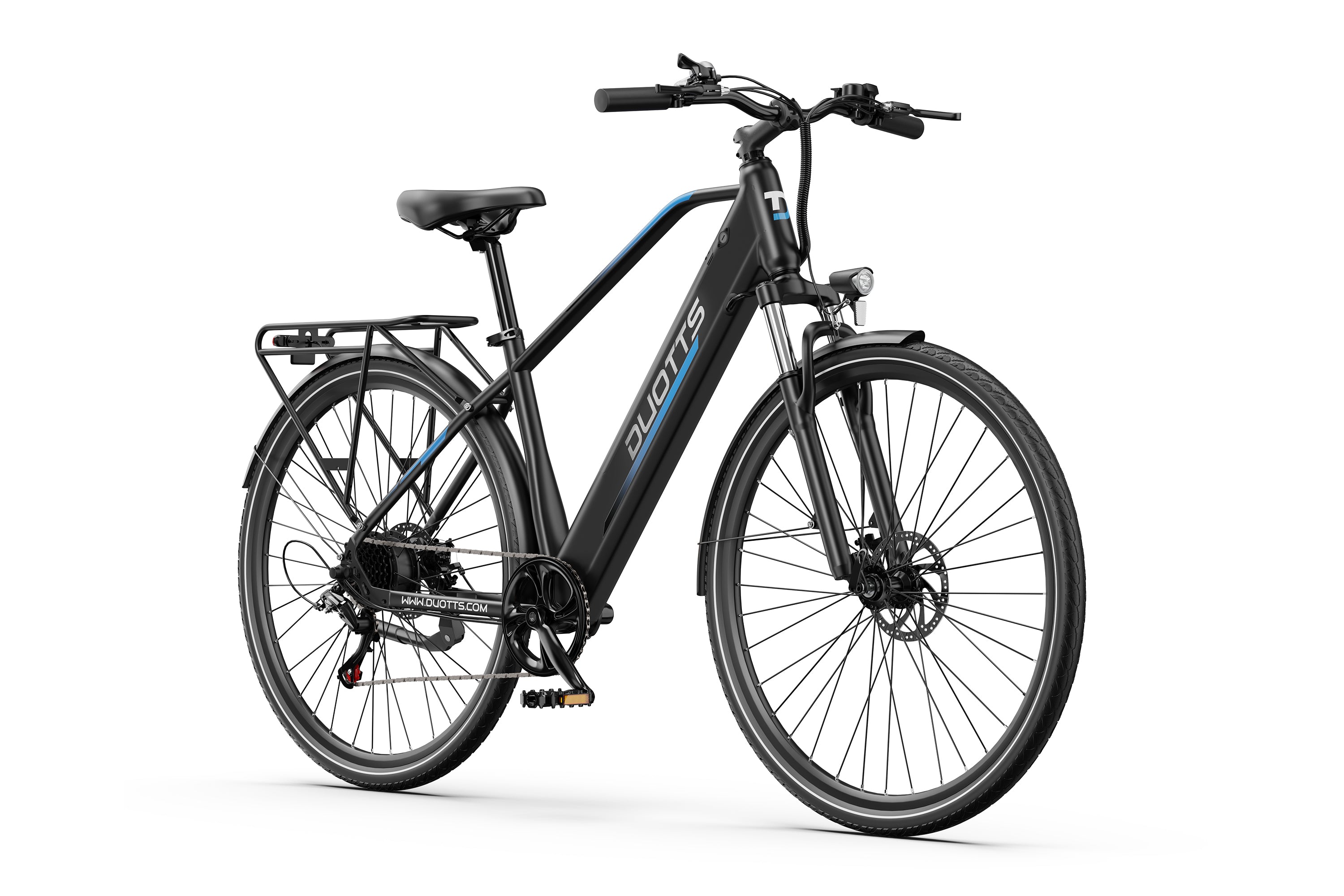
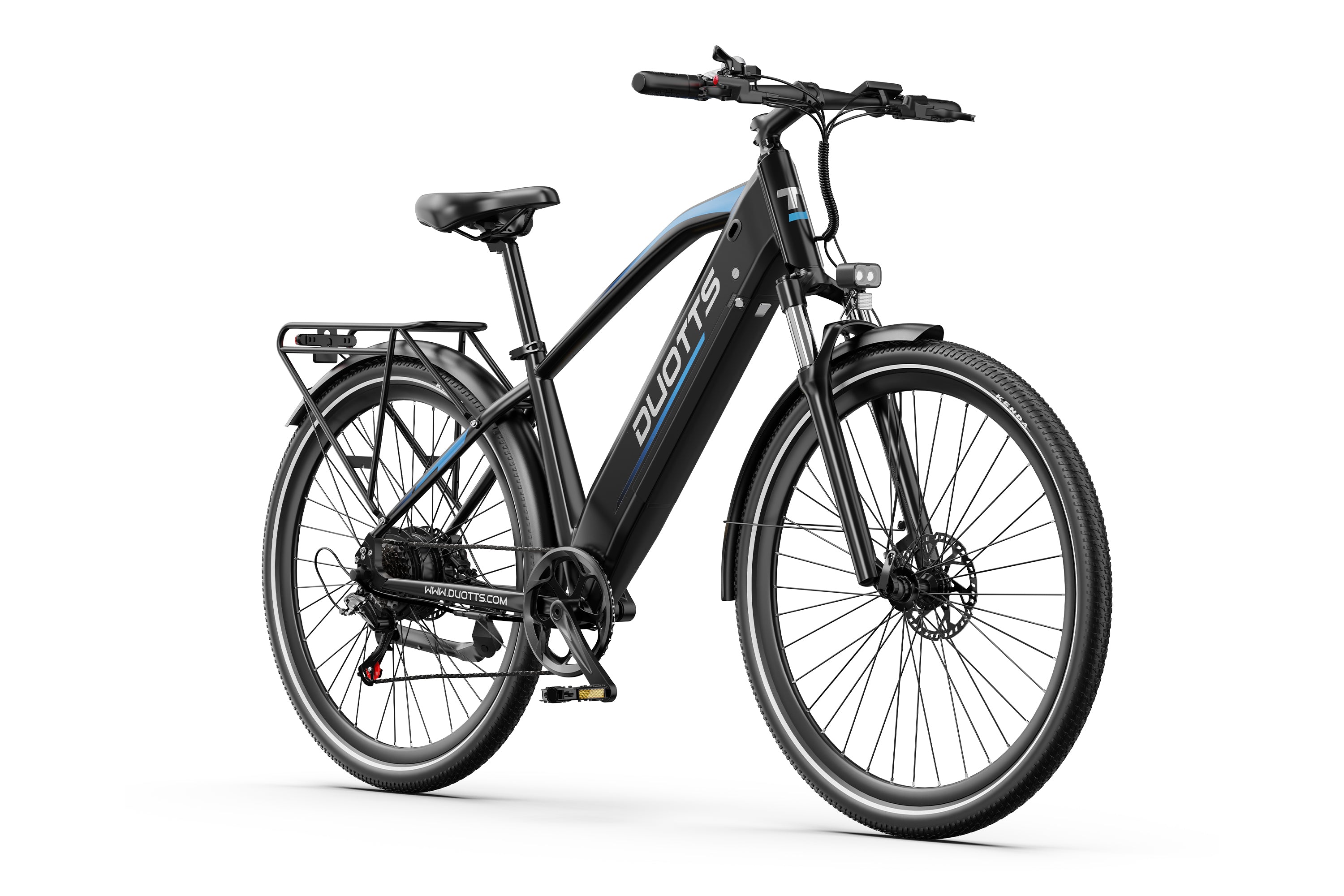
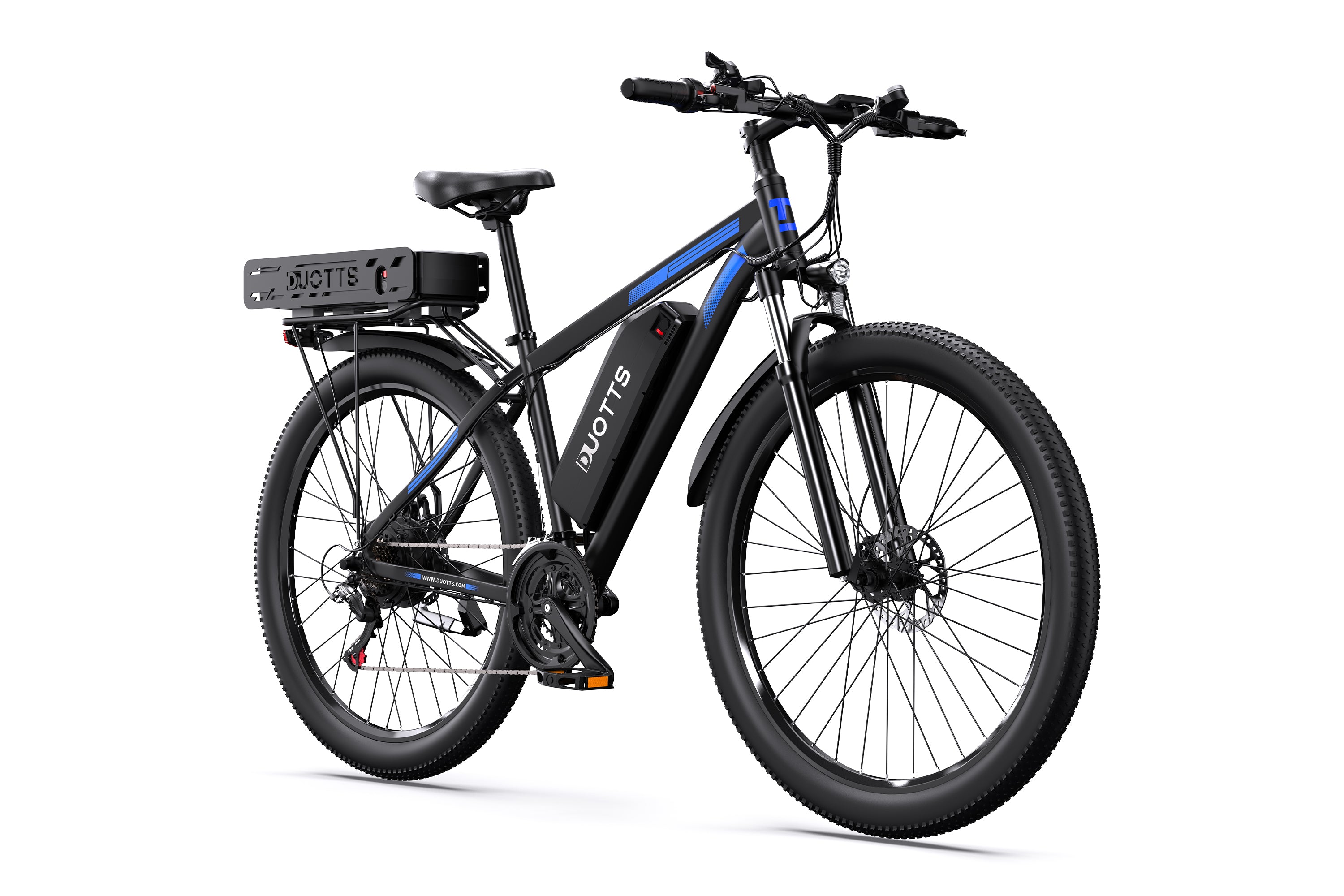
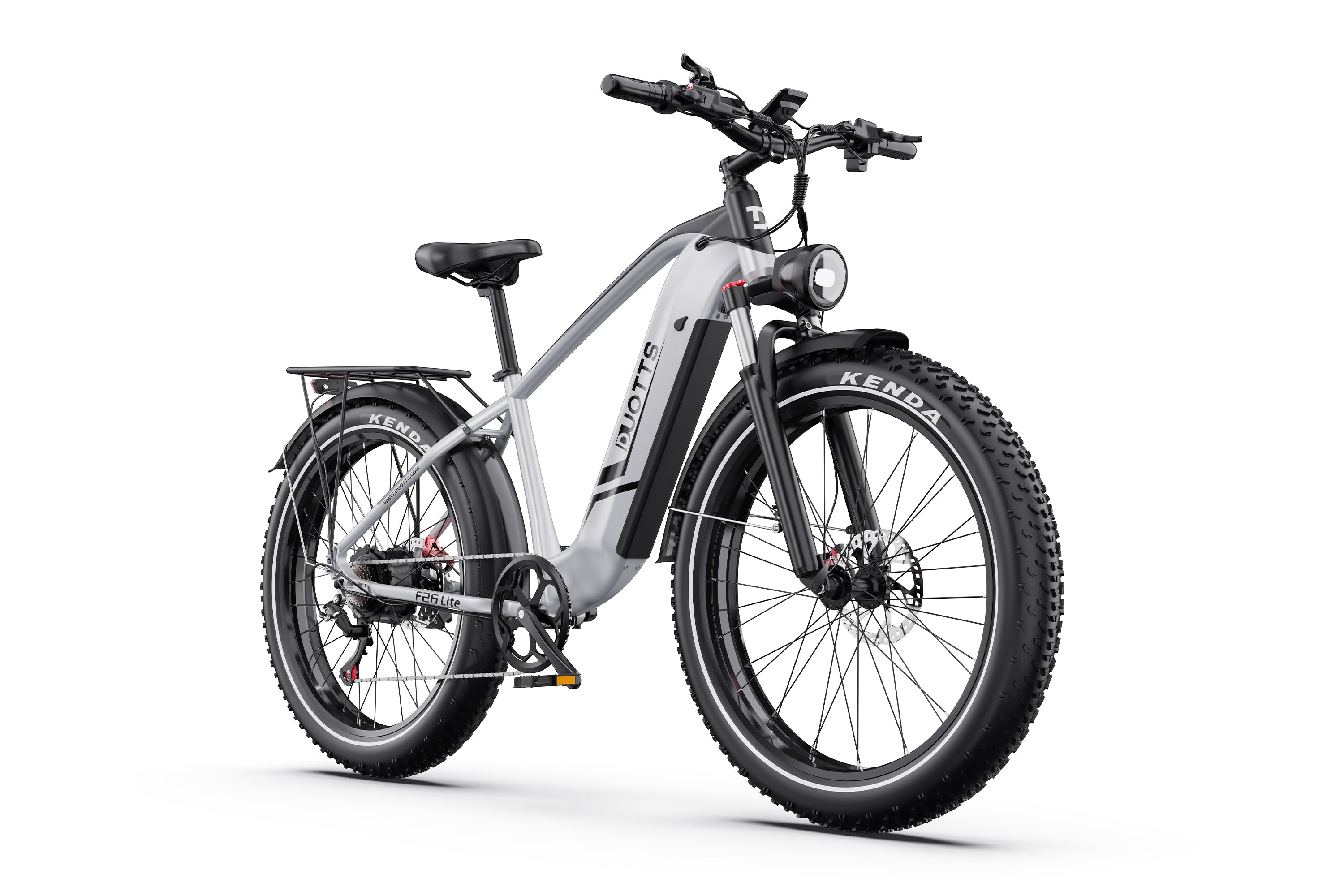
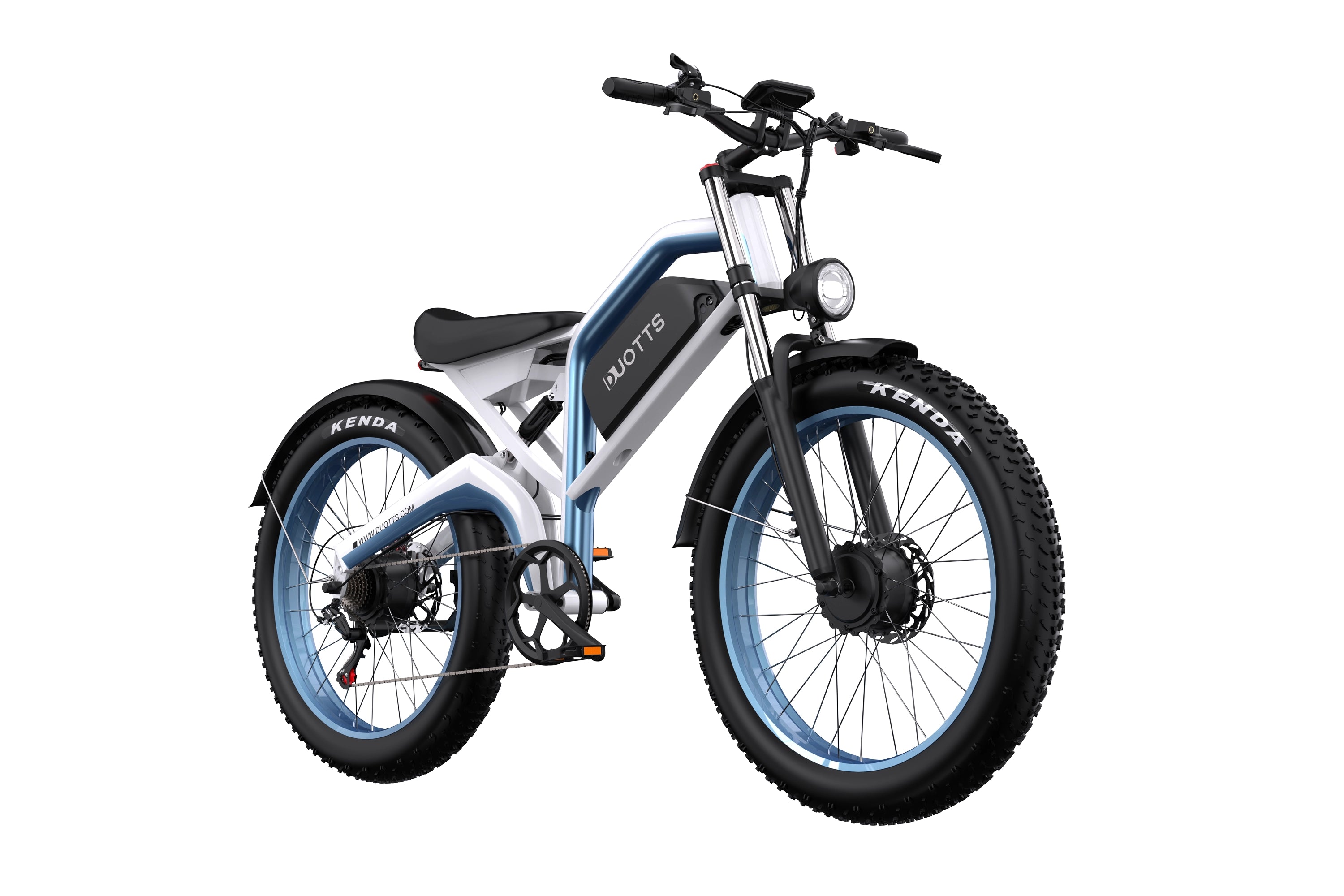
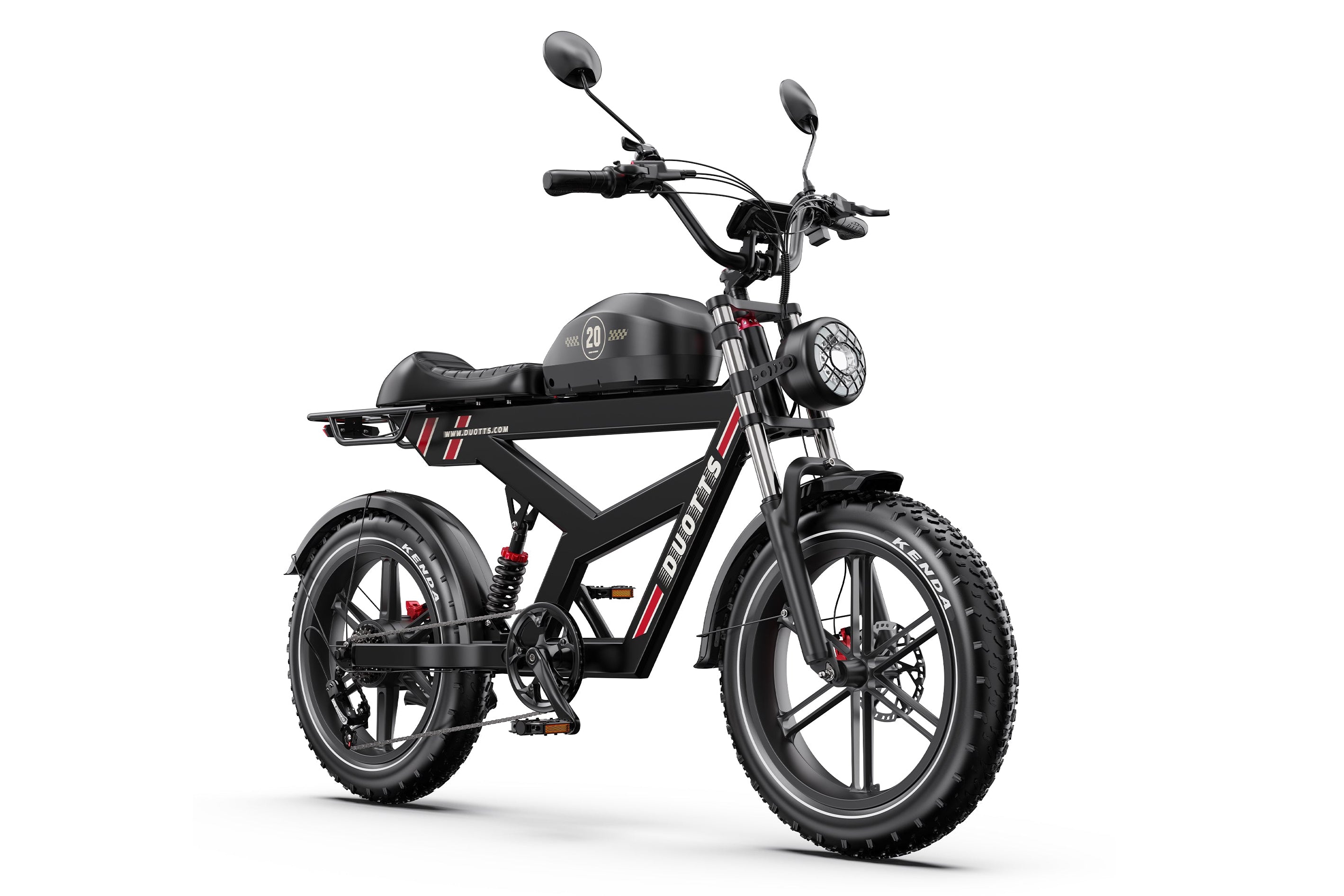
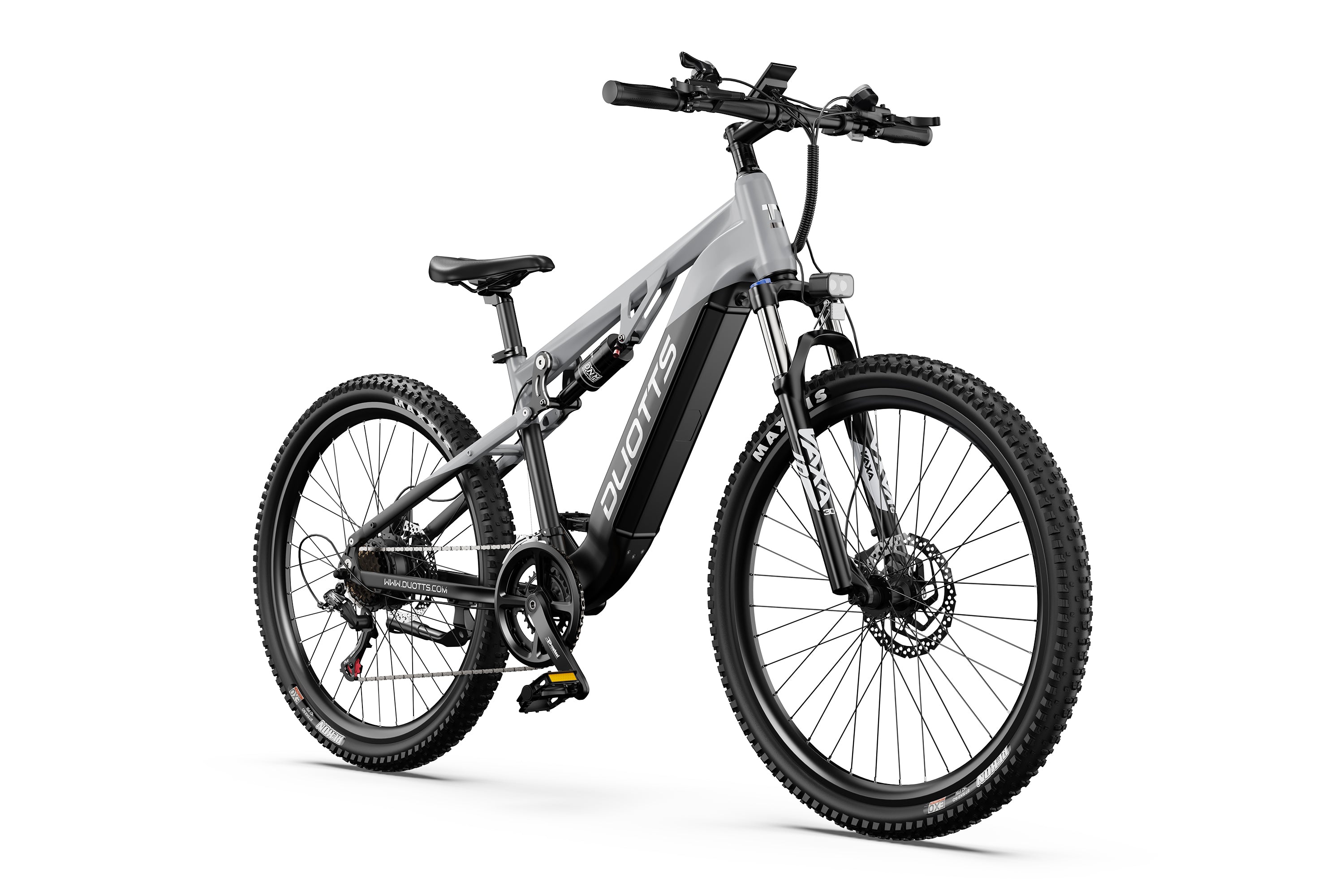
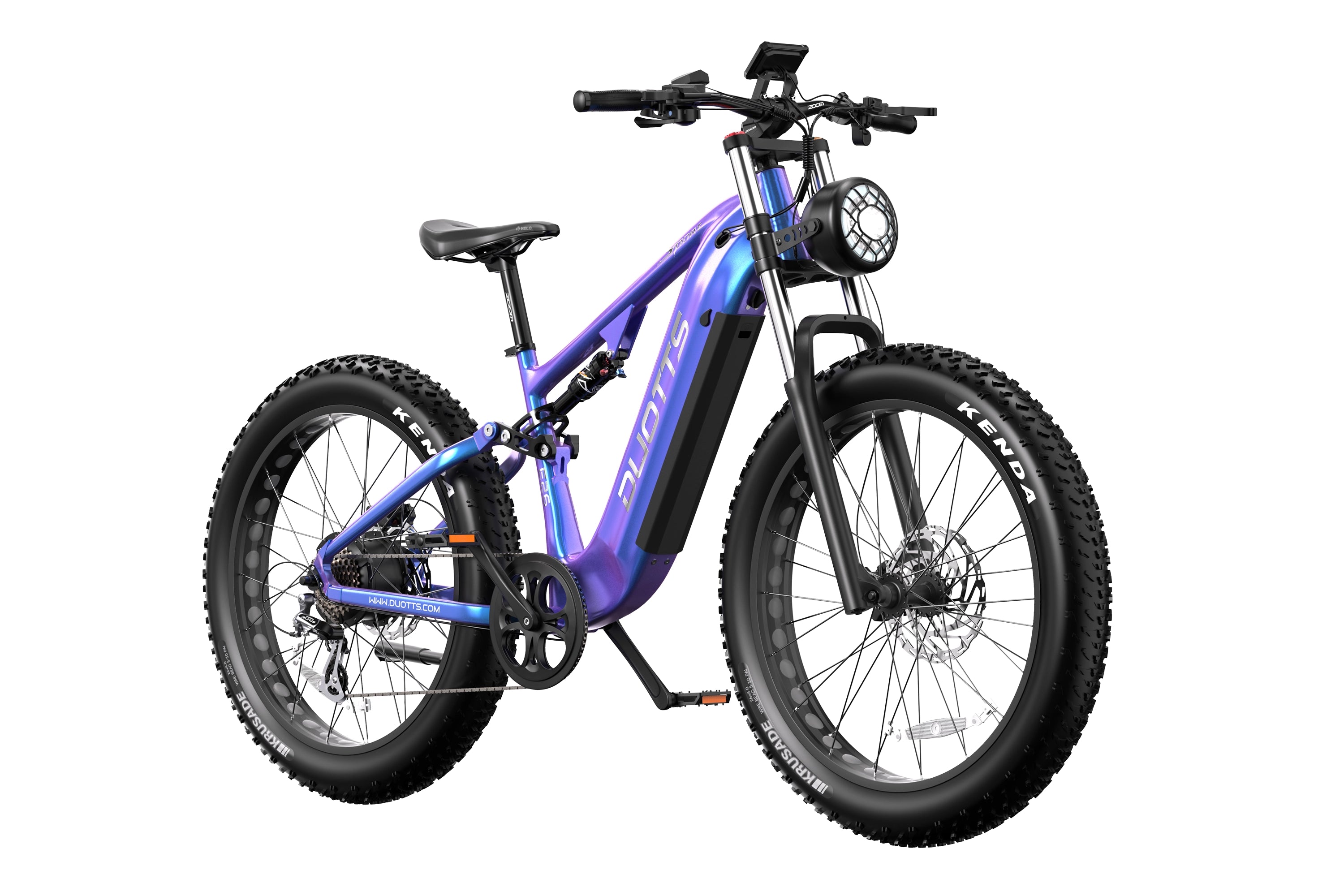
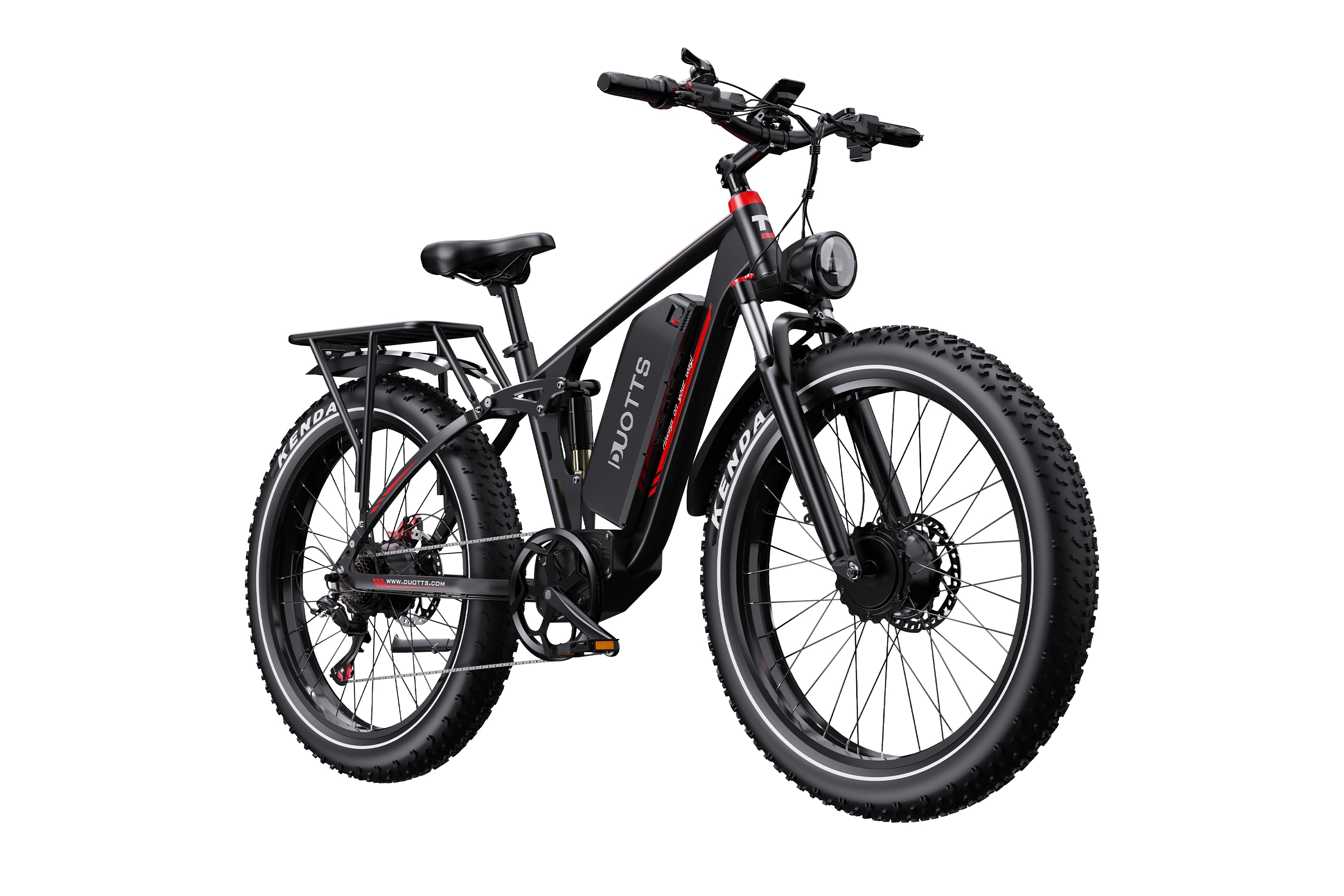
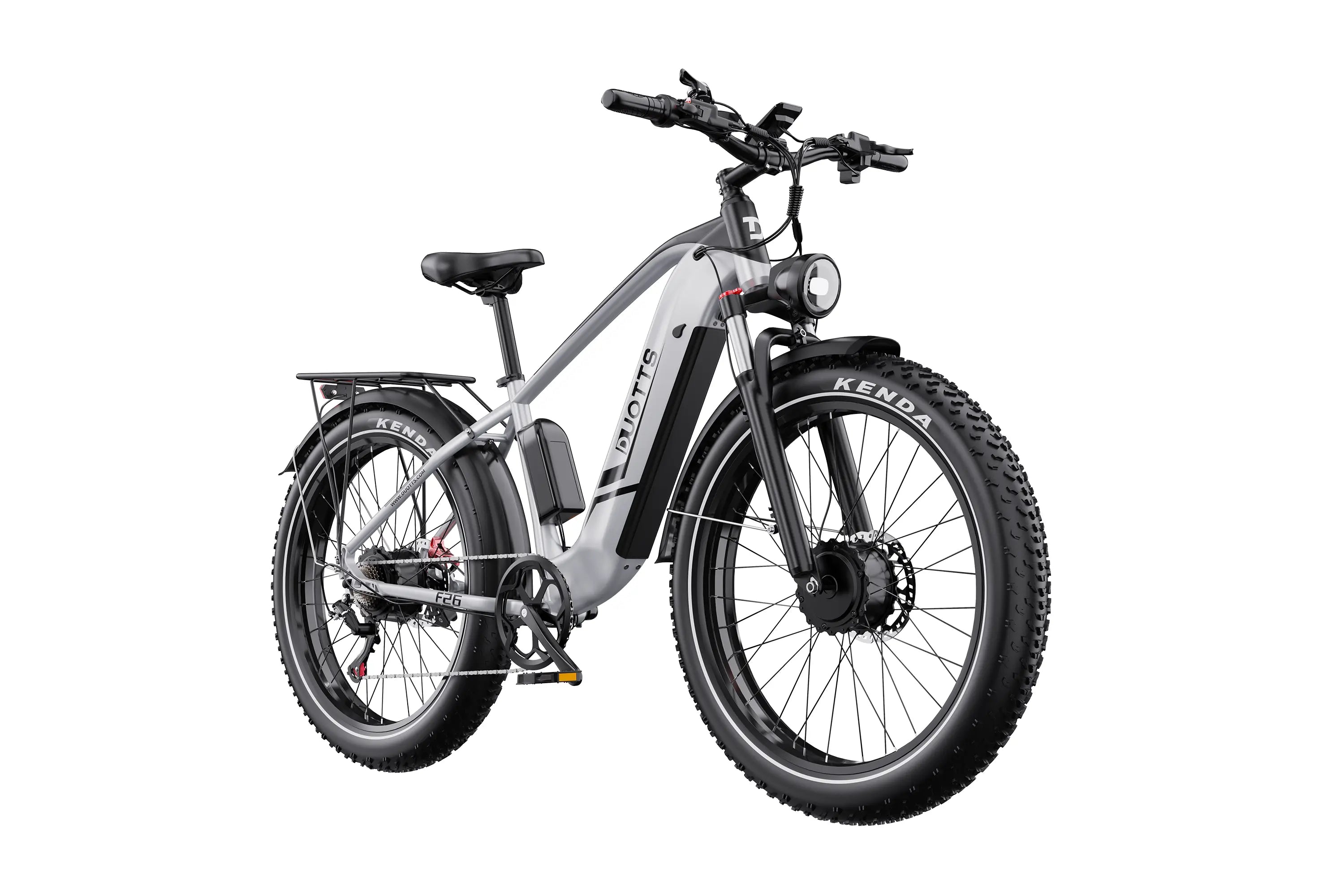
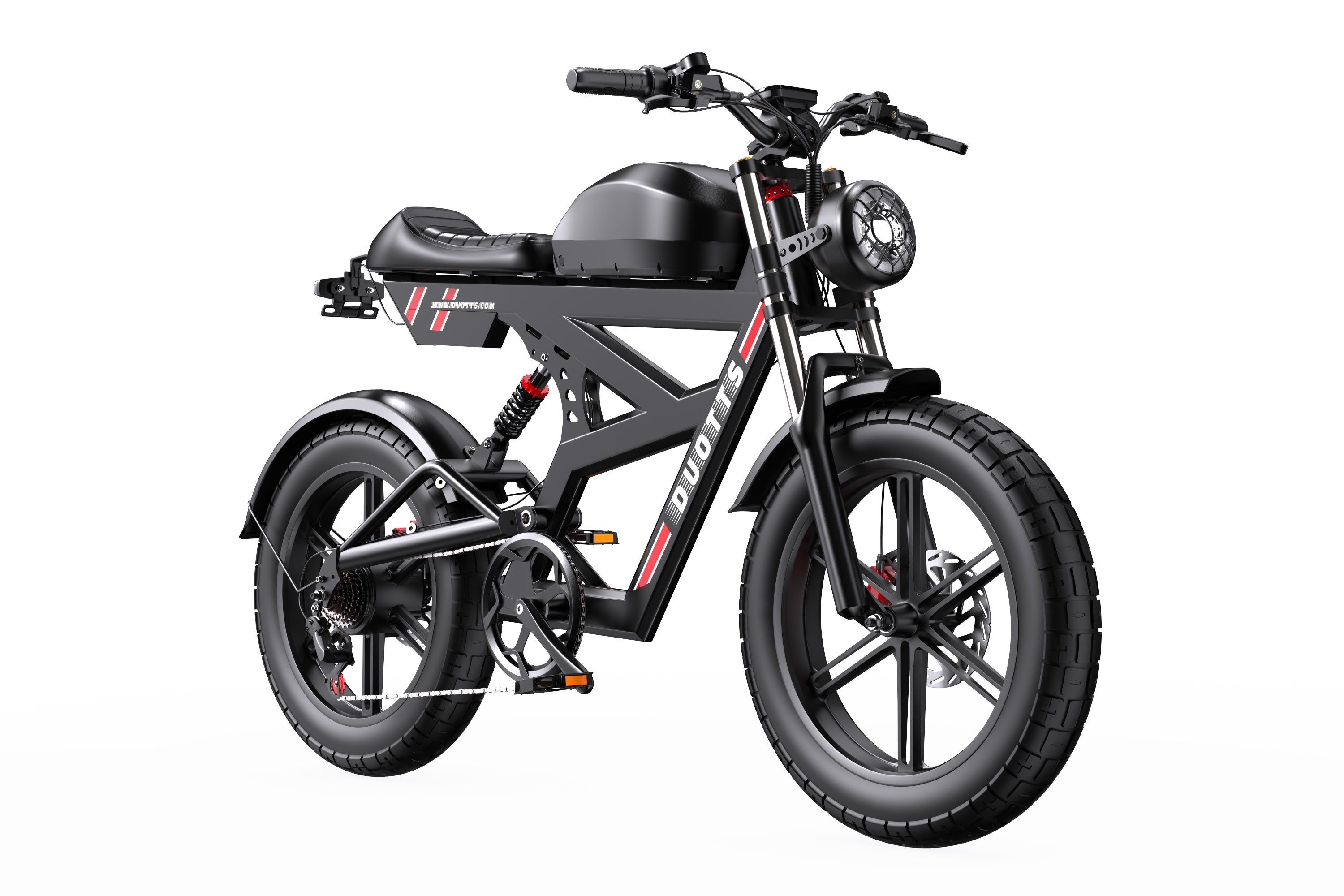



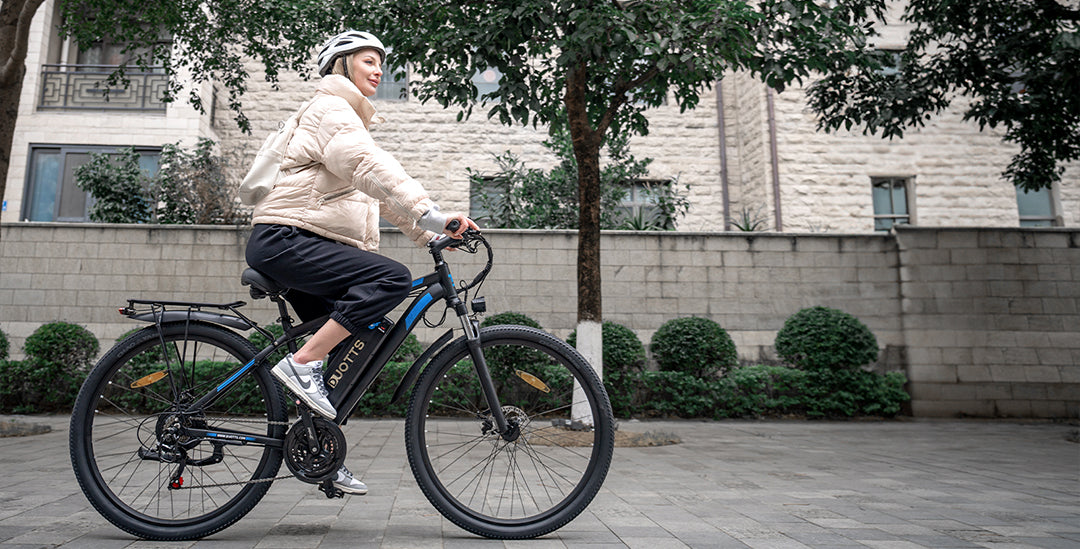

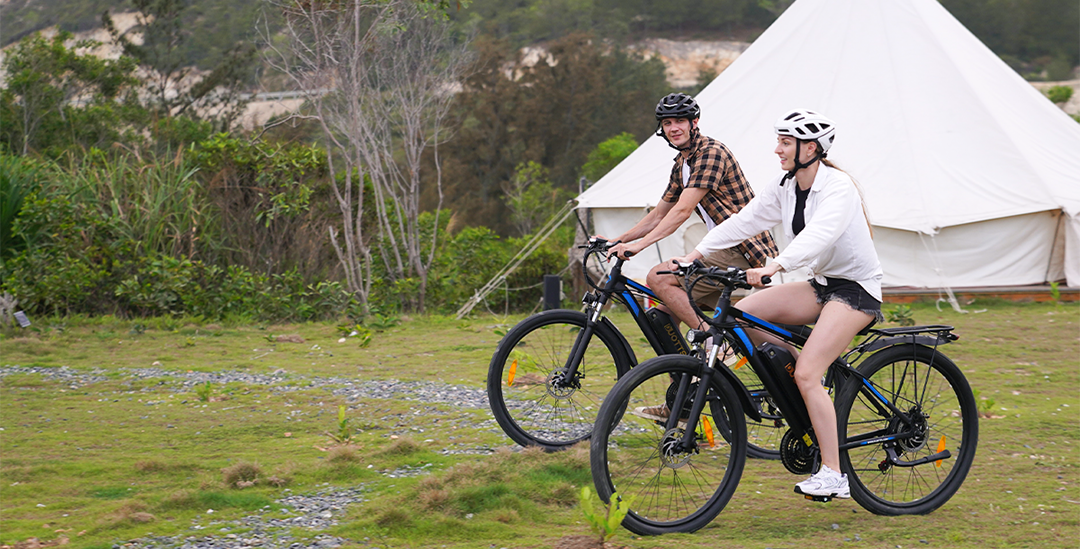


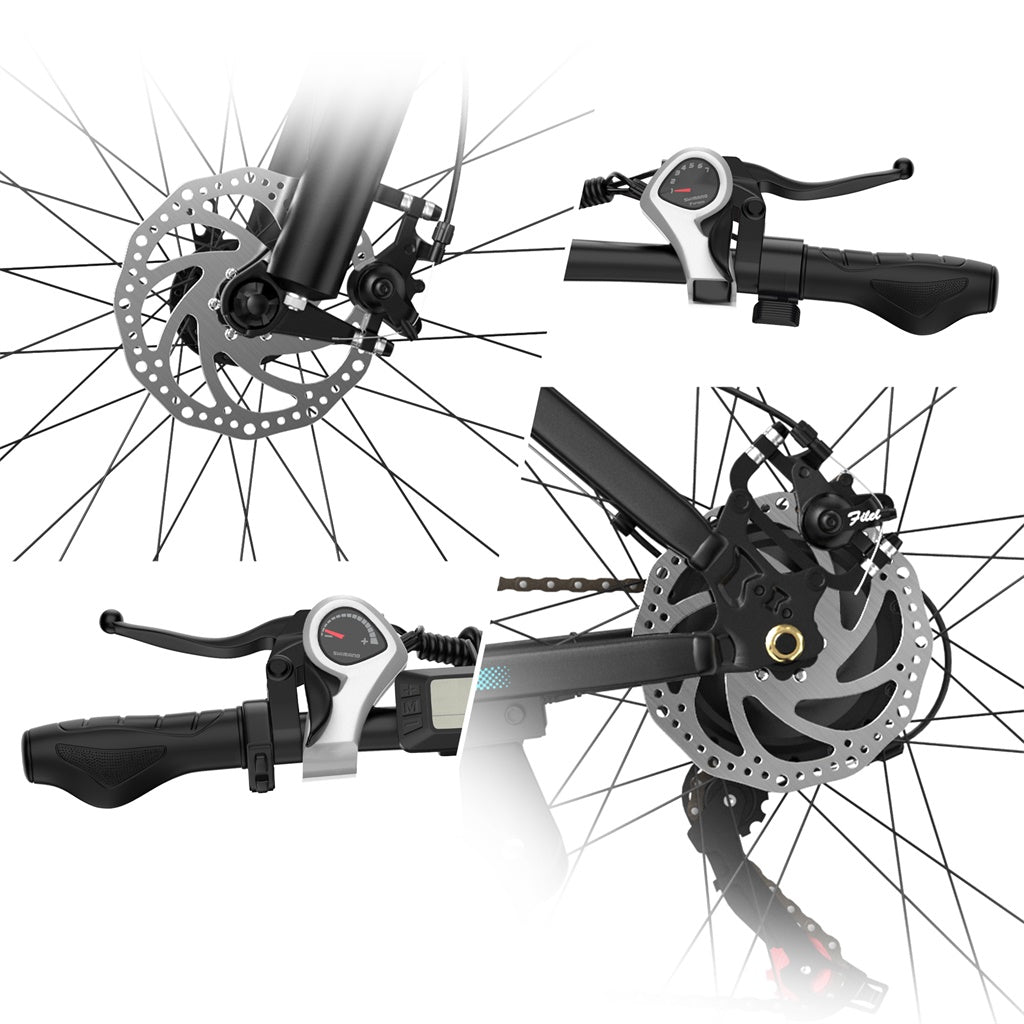
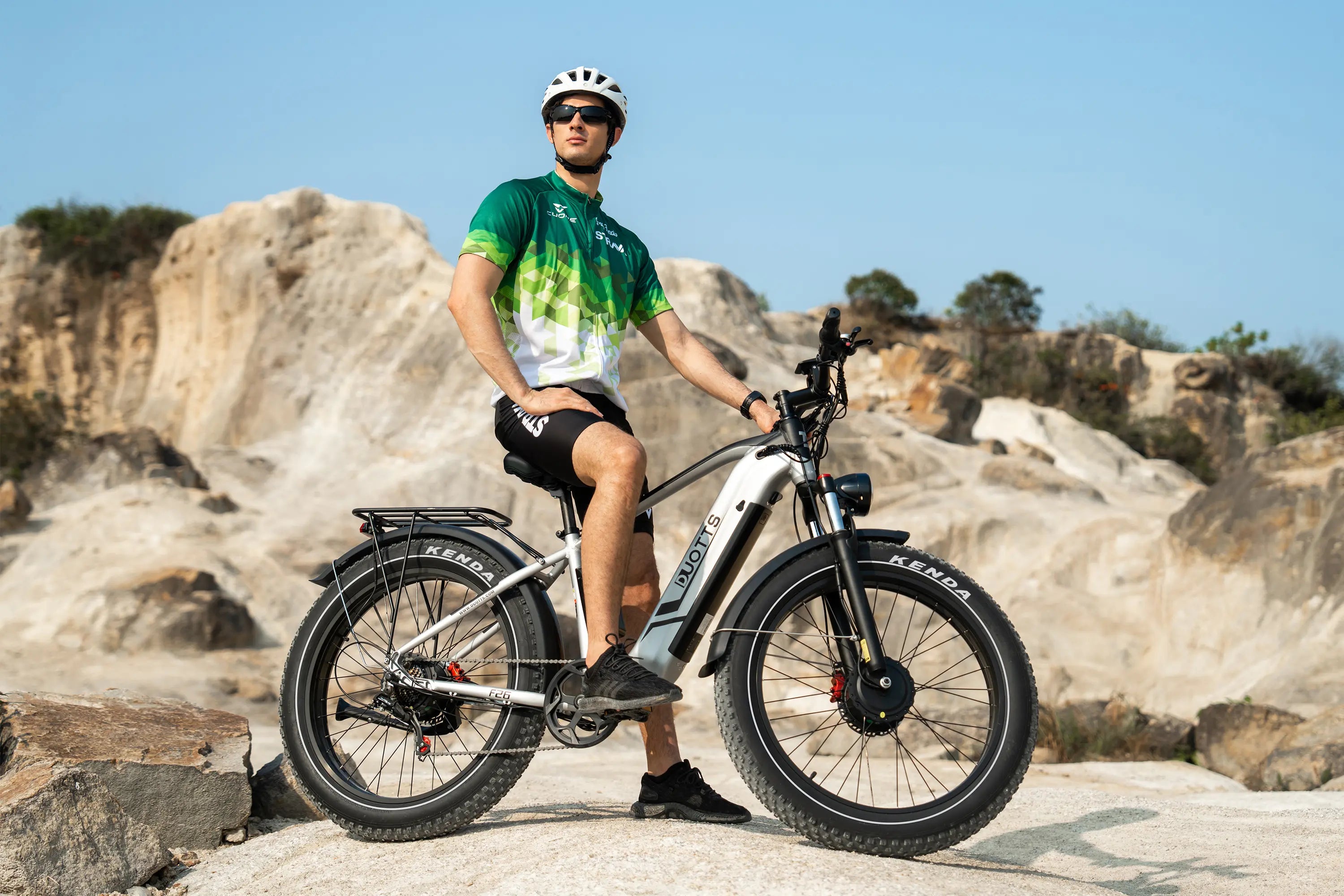


Laisser un commentaire
Tous les commentaires sont modérés avant d'être publiés.
Ce site est protégé par hCaptcha, et la Politique de confidentialité et les Conditions de service de hCaptcha s’appliquent.